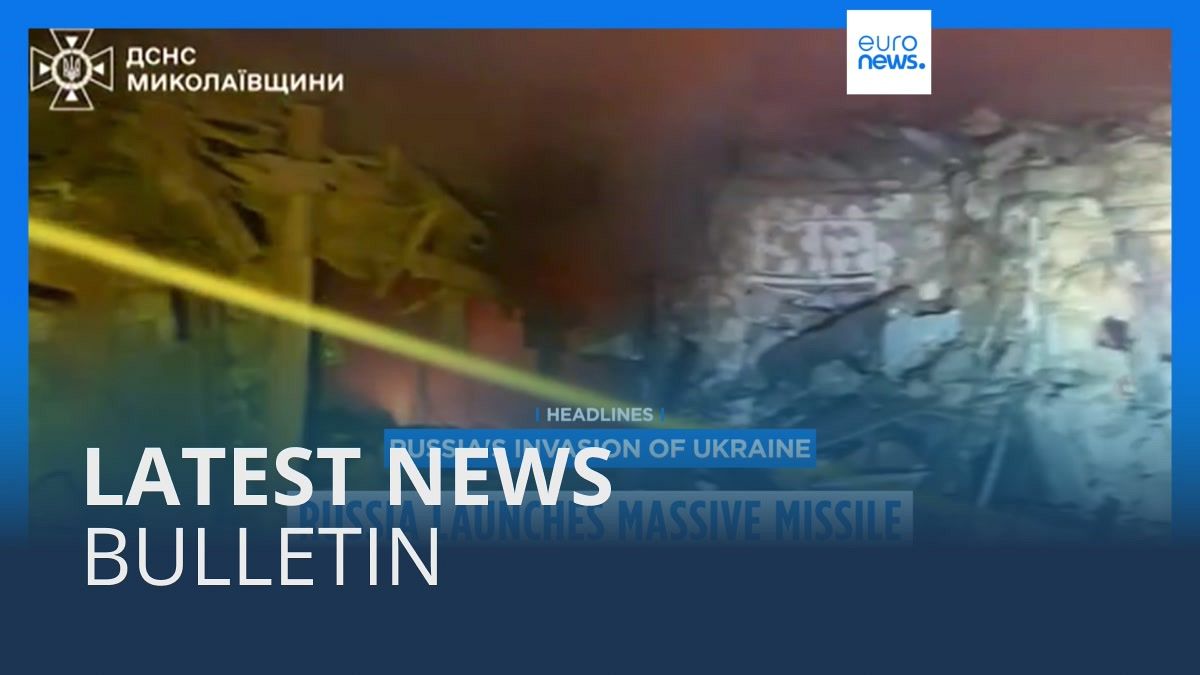Romanian election: What the hell is going on?
Here's what you need to know after an alleged Russian hybrid attack prompted Romania's Constitutional Court to cancel the presidential election.
BUCHAREST — Scrapping an election between two rounds of voting is a massive step to take, but Romania’s Constitutional Court decided it was essential to protect democracy from foreign attack.
The court’s move to annul the Romanian presidential election plunged the country into turmoil and it’s not clear where the upheaval will end.
Here is POLITICO’s guide to the extraordinary crisis in democracy engulfing one of the EU’s and NATO’s most important Eastern European member countries.
What’s happening?
This Sunday, Romanians were due to vote in the second-round runoff election for their next president. They had two candidates to pick from: center-right small-town mayor Elena Lasconi, and Călin Georgescu, a far-right independent who was catapulted from obscurity into the lead in the first round of voting on Nov. 24.
On Friday, Romania’s Constitutional Court decided the first round of the election was so badly damaged — by an alleged Russian operation to influence the result — that the whole process needed to be scrapped and started again.
Current President Klaus Iohannis has been forced to extend his term, political candidates are trying to regroup and preparing to rerun their expensive campaigns, and millions of voters are wondering whether they can trust the process at all.
No date has yet been set for the new votes but that will have to happen soon.
How did we get here?
Barely a month ago, Georgescu was almost unheard of inside his own country, with no party backing and a low profile in traditional media.
But all that changed in the final two weeks before the Nov. 24 first round of the presidential election. Some 25,000 pro-Georgescu TikTok accounts burst into action, in what Romanian analysts say was a coordinated attempt to sway the election in his favor.
President Iohannis received evidence from the secret intelligence services indicating that both state and non-state actors had interfered in the election, and naming Russia as responsible for a series of aggressive hybrid attacks. The U.S. endorsed the findings of Russian involvement.
Acting on the intelligence, Iohannis declassified secret files that alleged Georgescu had unlawfully benefited from extensive electoral promotion during periods when campaigning was prohibited. The documents alleged his campaign had received foreign financial support, despite the fact he declared he’d spent nothing on it.
The Constitutional Court was inundated by a surge of requests to annul the election in light of the declassified intelligence reports. On Friday afternoon, the court agreed.
The information “that this campaign was illegally supported from outside Romania” brought Iohannis to the conclusion that “we are dealing with a matter of national security,” the president said in a televised address Friday evening.
What’s at stake?
Inside Romania, this election was seen as a battle between East and West. In a country where memories of brutal Communist dictatorship are still vivid, the choice for many voters felt existential.
The pro-EU Lasconi enjoyed support from the centrist traditional parties, while Georgescu was backed by three far-right groups, two of which have recently entered parliament.
His positions on NATO and the EU — he has been highly critical of Romania’s involvement with both — stoked fears that he would rip up the country’s international alliances and turn instead toward Moscow. He has praised Russian President Vladimir Putin as a leader and a patriot, and vowed to end all Romanian aid to neighboring Ukraine — which would be a big step at a critical time for Kyiv.
Even so, millions of Romanians were attracted to Georgescu’s traditionalist campaign and had been ready to vote for him on Sunday’s runoff against Lasconi. He won more than 2.1 million votes in the first round when competing against seven other main candidates, after parading his belief in traditional family structures and his Romanian Orthodox faith.
Georgescu now says he’s a victim of a plot by the political elite to keep him out of power and thwart the will of the people, likening his treatment to that of Donald Trump by the establishment in the United States.
Even his main opponent, Lasconi, denounced the court’s decision, saying Romania’s democracy was being “trampled” by the state. Georgescu used the same phrase.
The risk in the court’s decision is that more Romanian voters may now lose faith in the country’s political system. While central Bucharest were calm Friday evening, there was a heavy police presence on the streets. The contest has attracted public demonstrations from thousands of people in recent days.
What happens next?
Georgescu said he will file a complaint with Romania’s Supreme Court, but there’s no clear legal route to overturning the Constitutional Court ruling. He has not said yet whether he intends to stand again in the rerun election.
On Dec. 1, Romanian voters also elected a new parliament. Next week a broad coalition made up of four parties will form a government that will work on organizing the new presidential election.
The coalition will name a prime minister to be approved by the incumbent president. Iohannis’ mandate would have ended on Dec. 21, but he said he will stay in power until his successor is sworn in.
In the meantime, criminal investigators have launched an inquiry into the cyberattacks on election infrastructure, which were detailed in the declassified intelligence files. This is the third investigation opened by Romanian prosecutors after the general prosecutor launched two others looking at voter corruption, computer system fraud and campaign money-laundering of at least €1 million.
There are also calls on the Constitutional Court to cancel the parliamentary election, which was sandwiched between the two rounds of the presidential contest. Some parties point to the fact the ballot was held during the same hybrid attacks that triggered Friday’s annulment ruling.
Carmen Paun contributed reporting.
What's Your Reaction?



















































